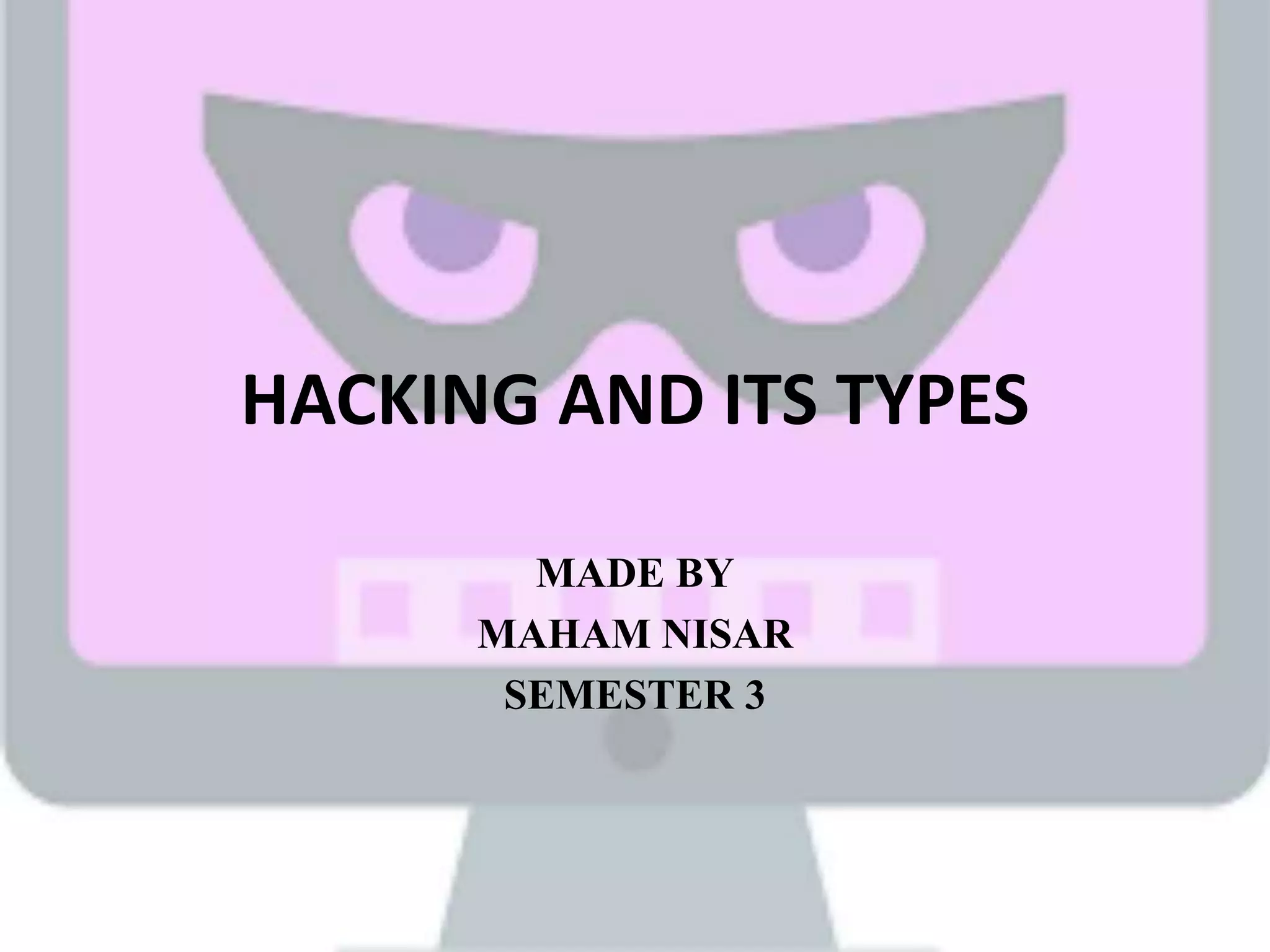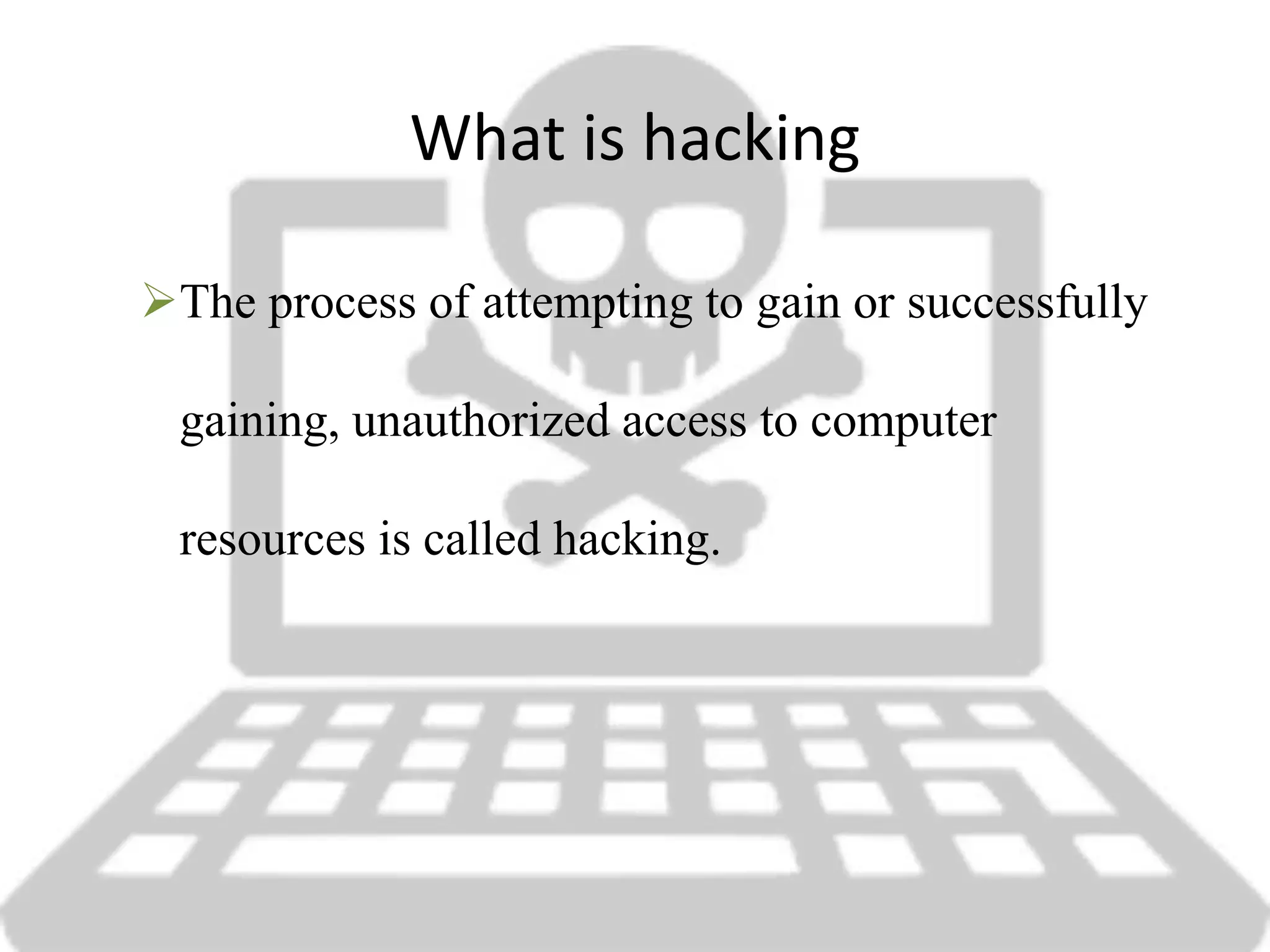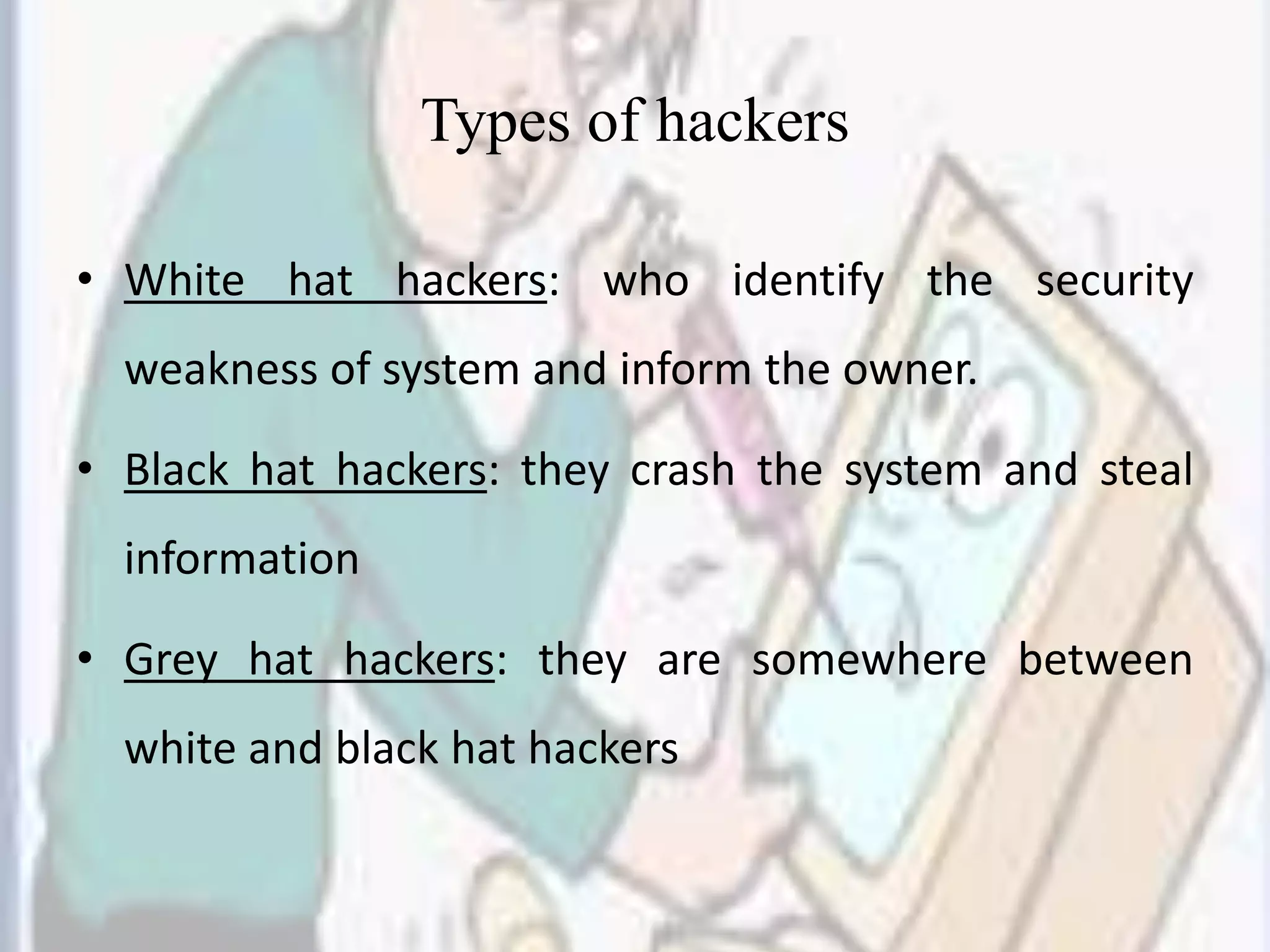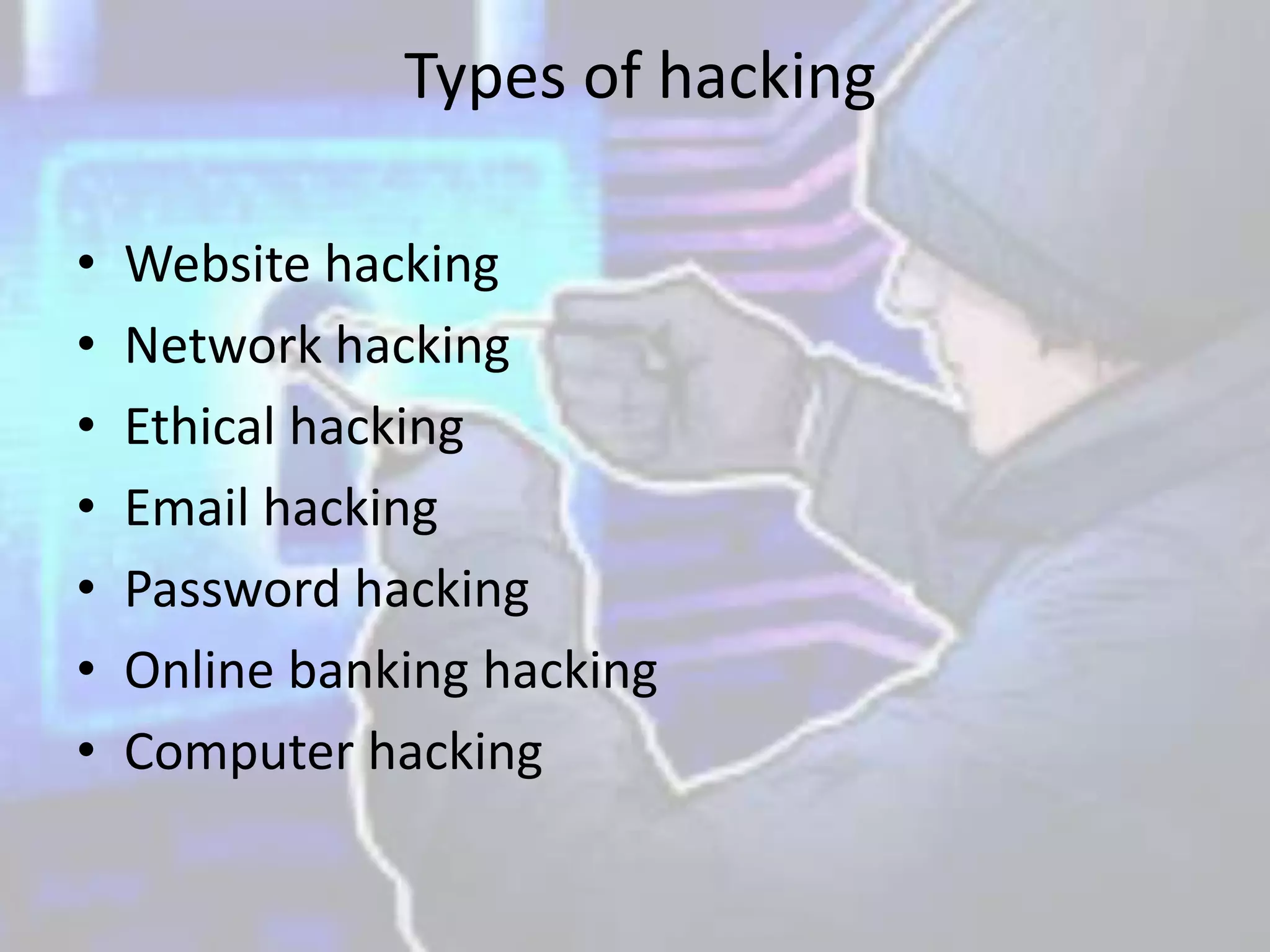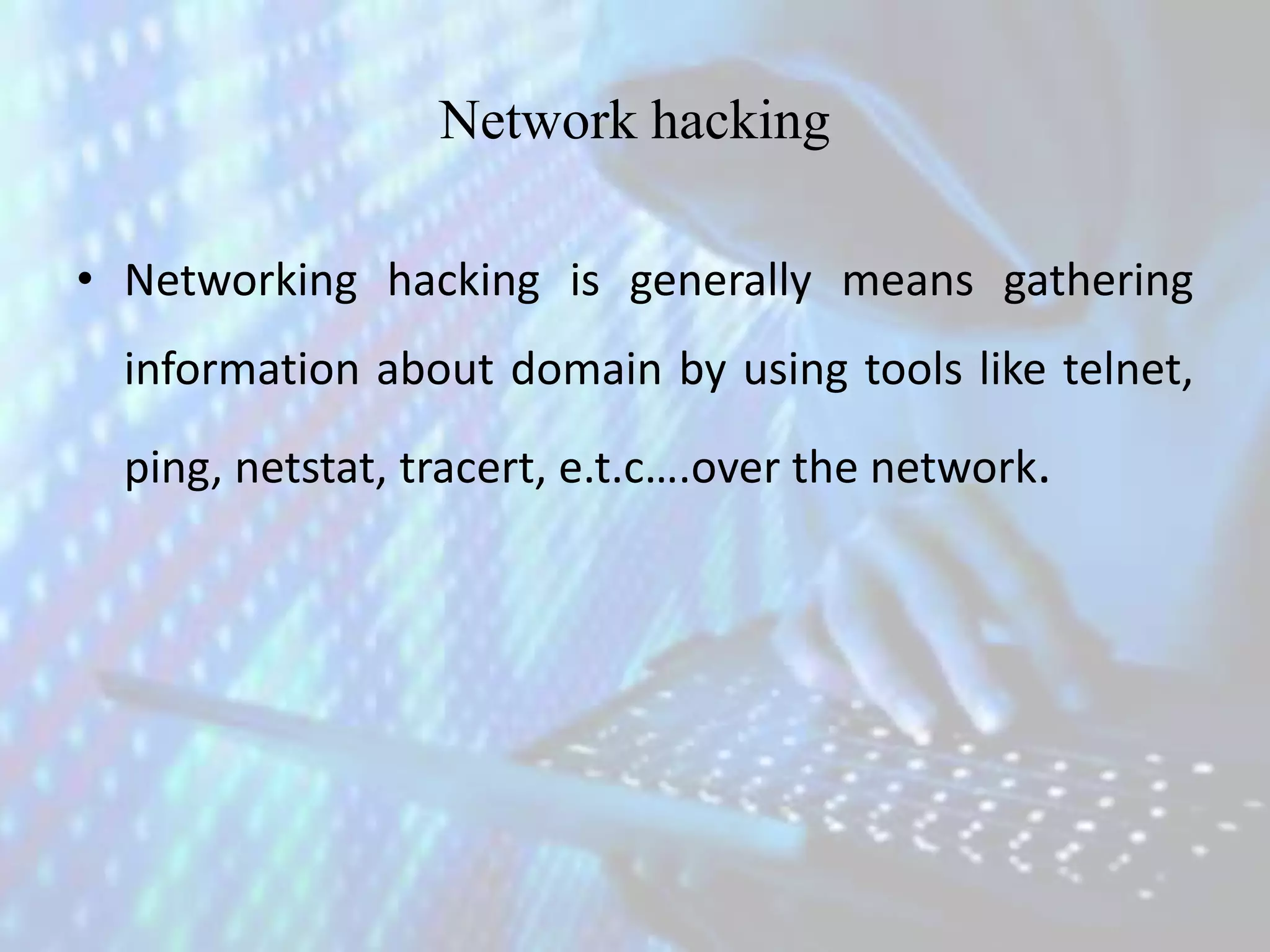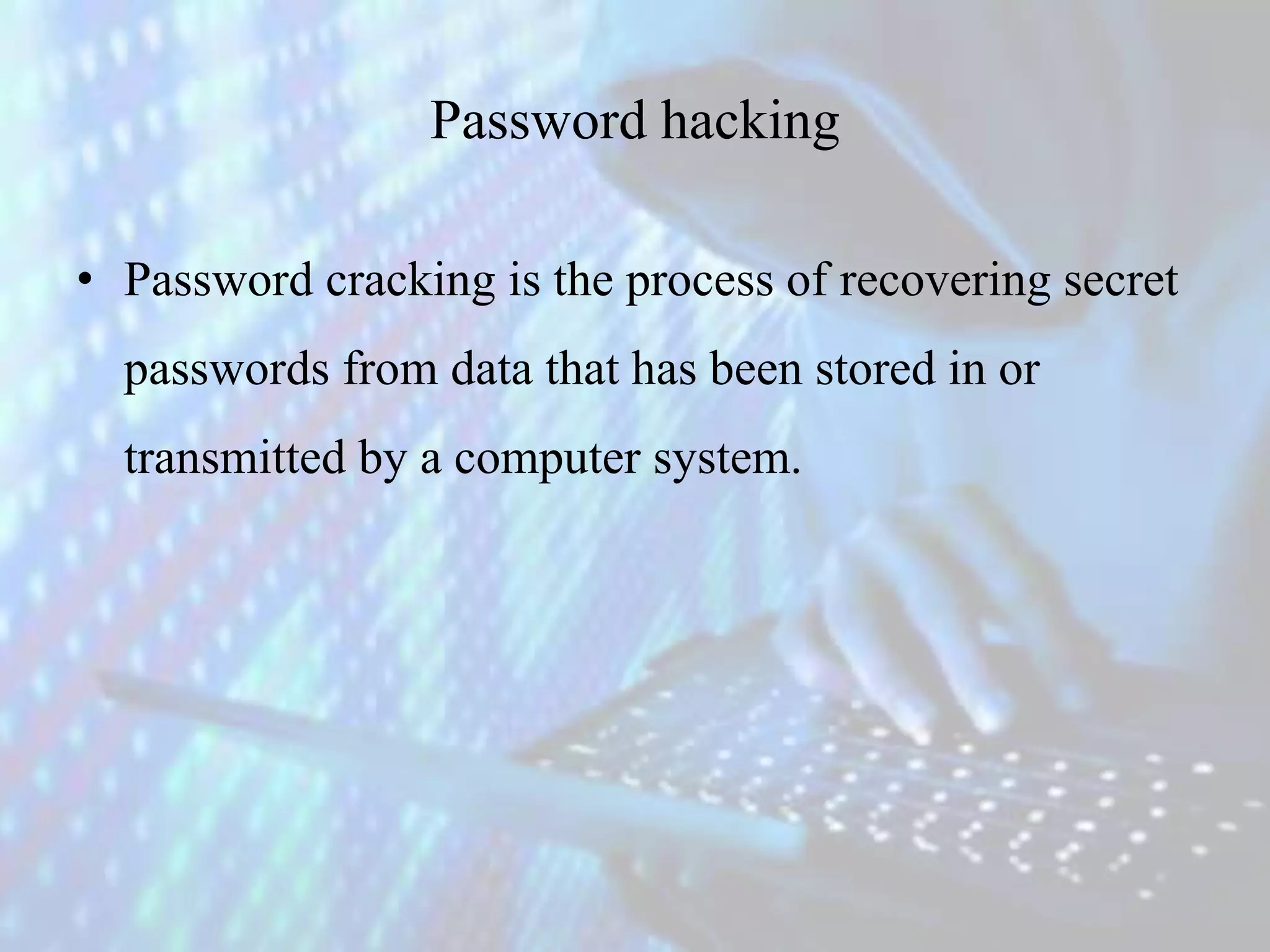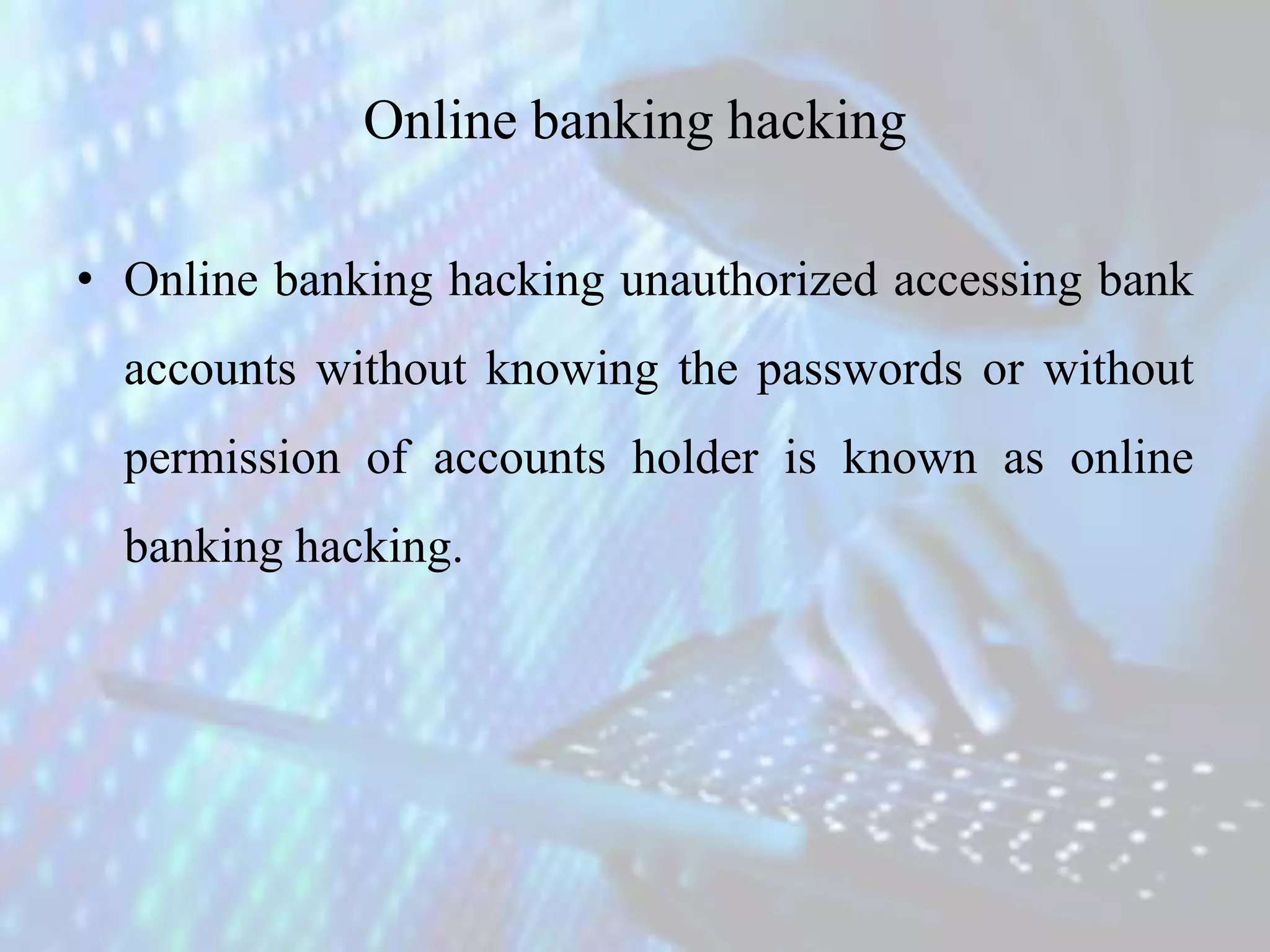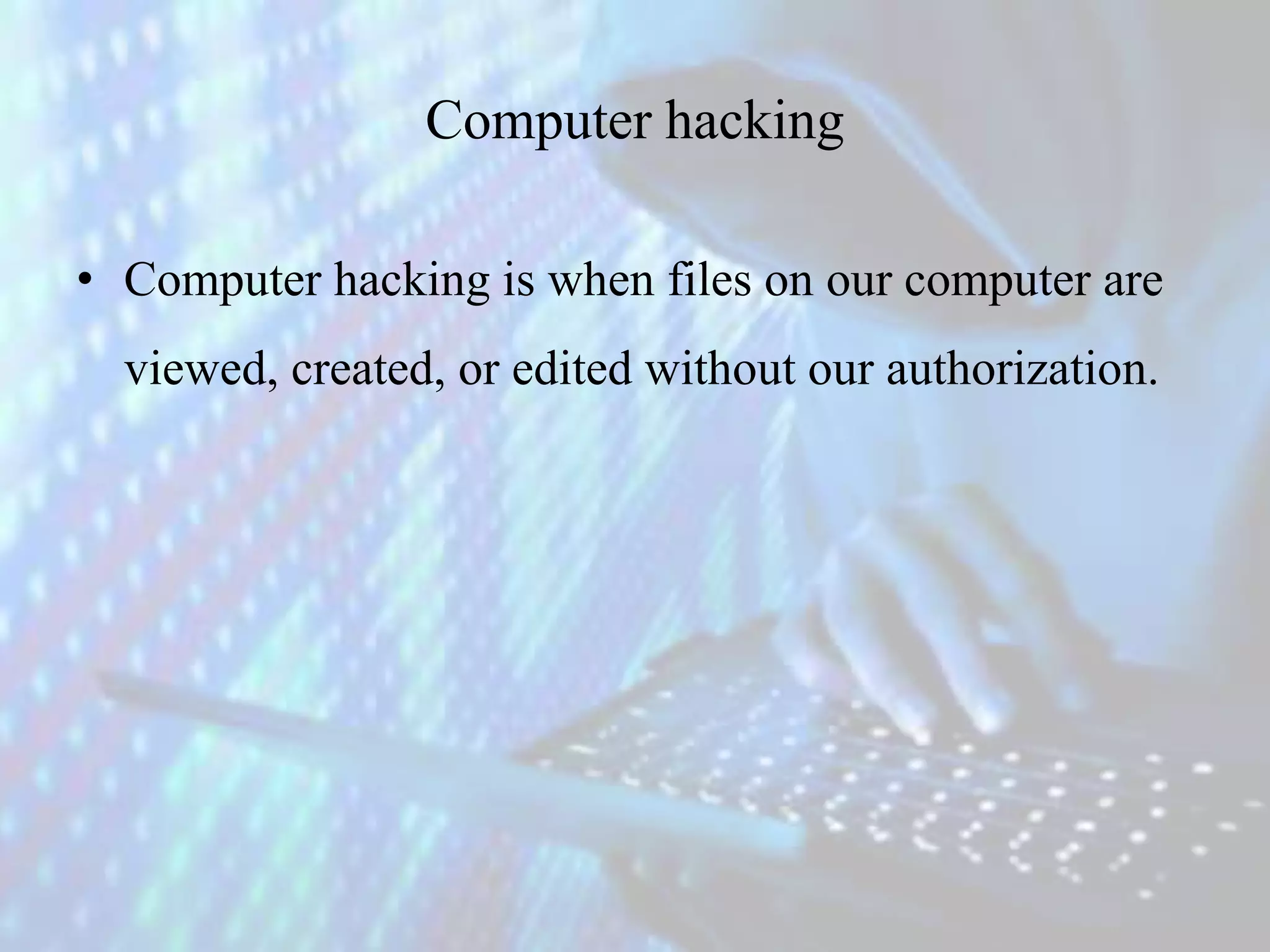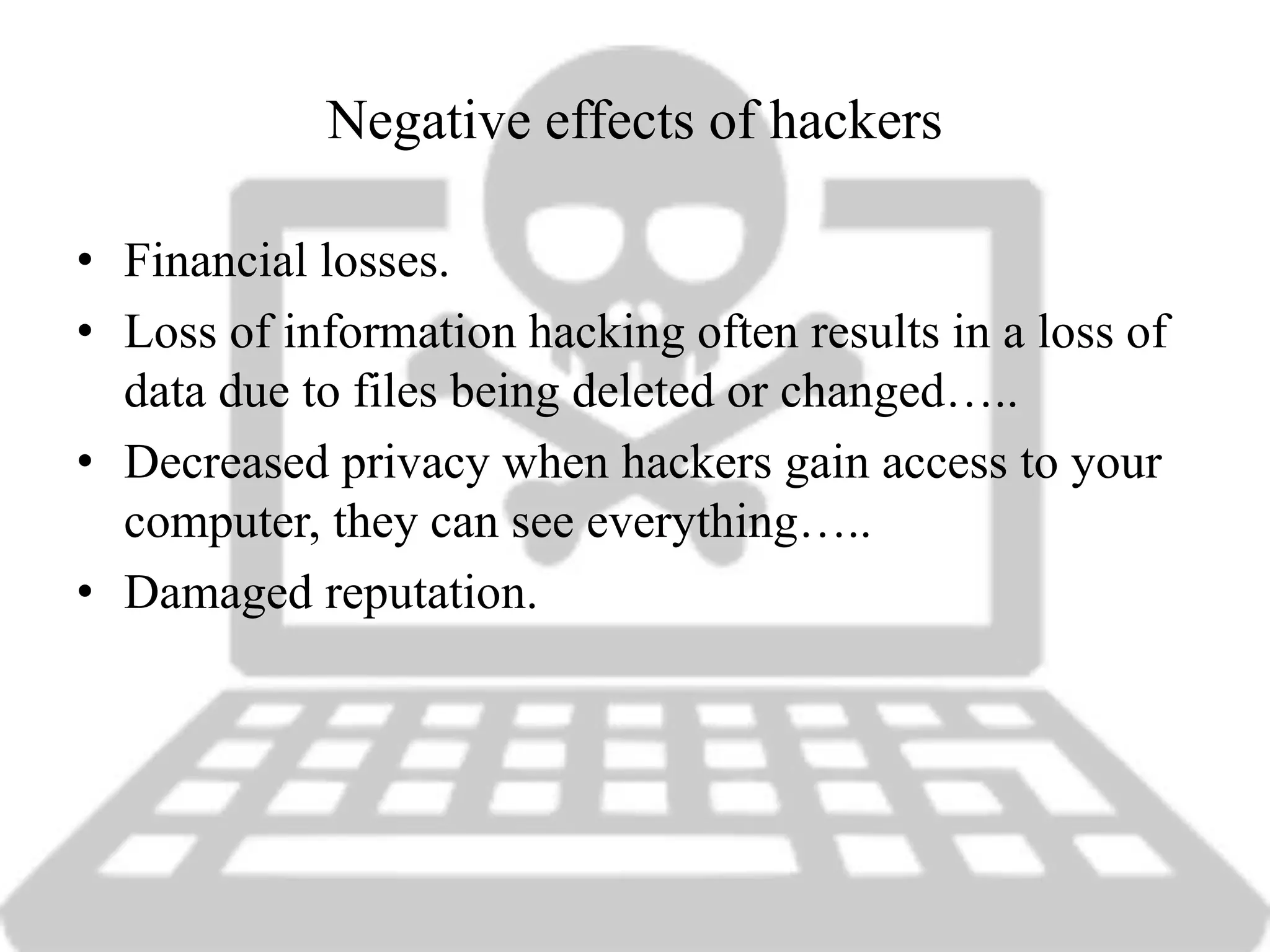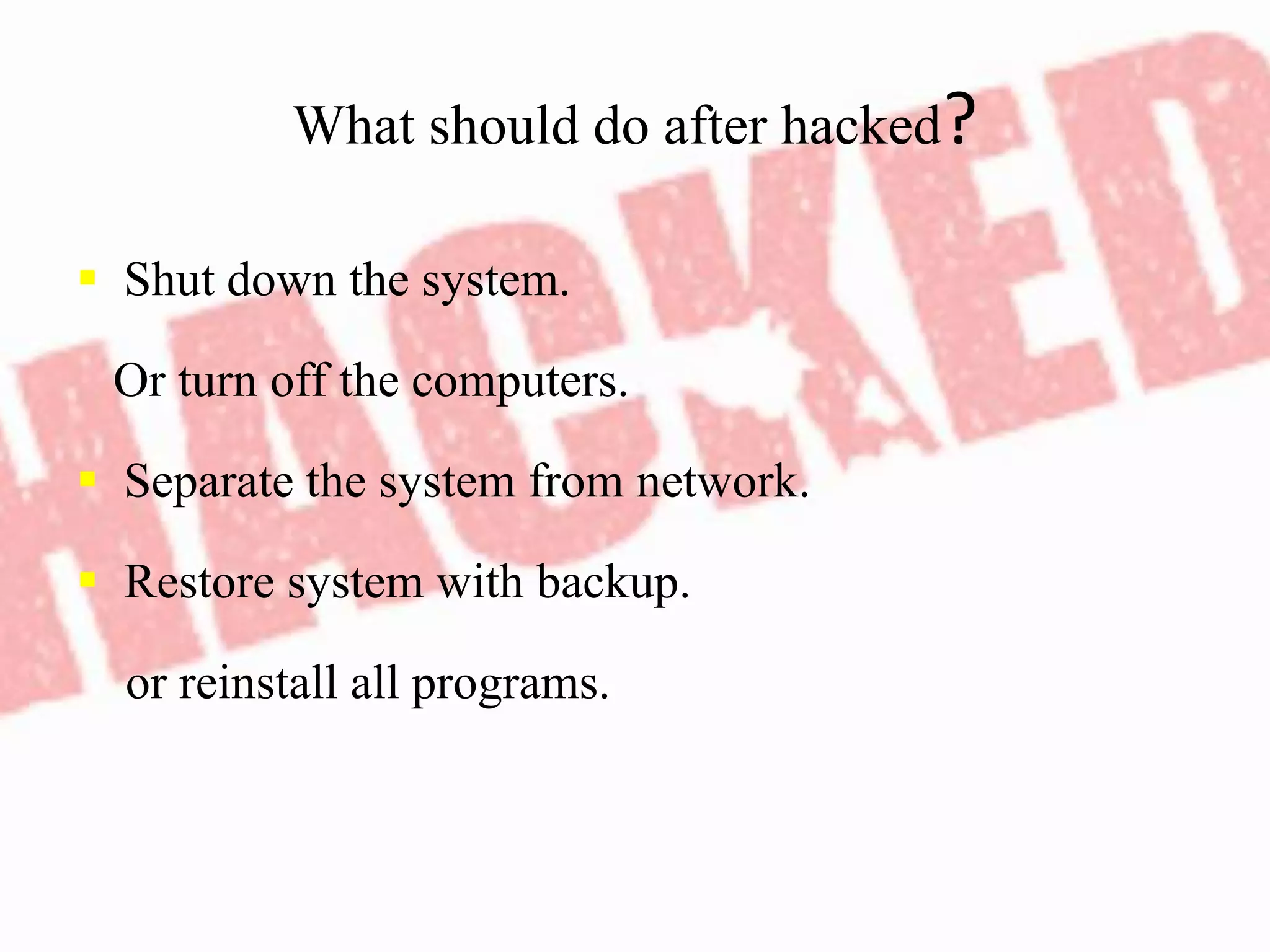This document discusses the history and types of hacking. It defines hacking as attempting to gain unauthorized access to computer resources. There are three main types of hackers: white hat hackers who find security weaknesses to help owners, black hat hackers who intend harm, and grey hat hackers in between. Reasons for hacking include fun, showing off, stealing information, or destroying networks during war. Types of hacking include website, network, email, password, online banking, and computer hacking. The document also covers the negative effects of hacking and steps to take after being hacked.
